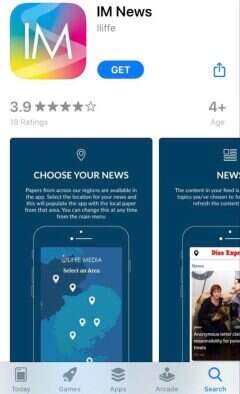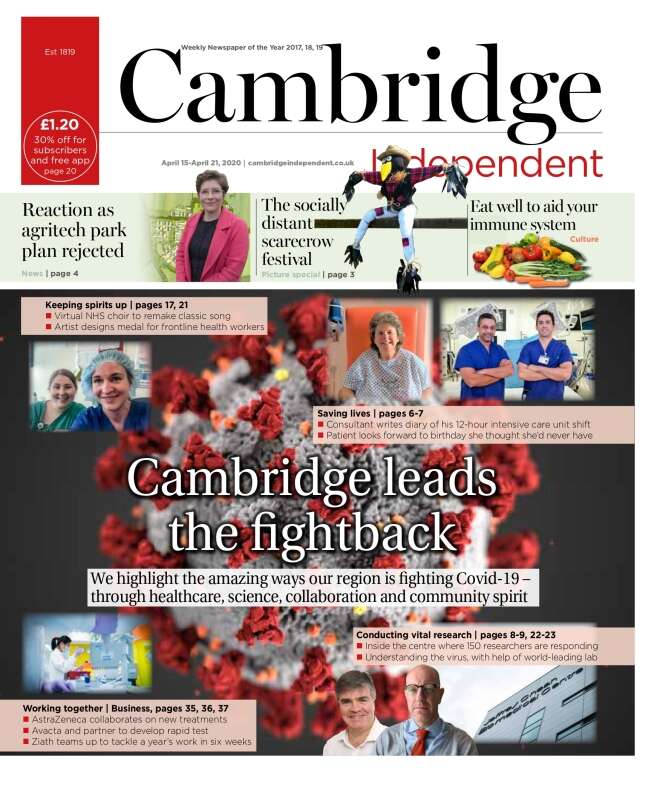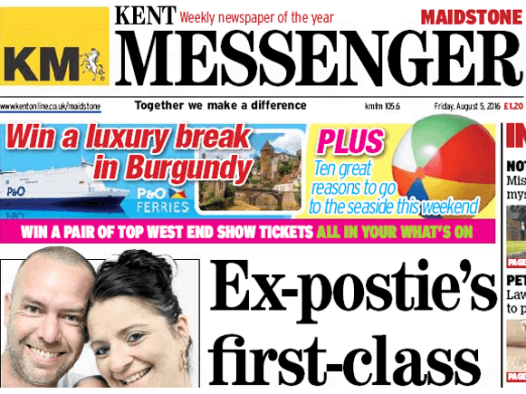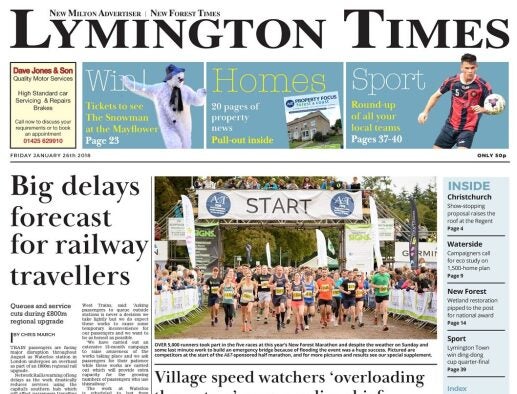
Regional publishing boss Edward Iliffe has ruled out expanding his newspaper empire further for the immediate future, saying it is better to keep a “parochial” touch to re-engage readers.
The chief executive of Iliffe Media Group said he is now concentrating on building up subscription revenues.
Iliffe’s family has a long history as regional press owners. But while most family-owned regional press companies have either sold out or gone to the wall in recent years, Edward Iliffe believes quality local journalism has a long-term future and is investing in it.
He has rebuilt the family company after previously selling its titles to Trinity Mirror as part of the £220m Local World buyout. Iliffe News and Media merged its titles into Local World in 2012 in exchange for a 21% stake in the joint venture.
The publisher this month bought two historic family-run local newspapers, the Lymington Times and New Milton Advertiser, alongside partners Peter and Rory Fowler.
It was their fourth joint acquisition, after buying the Stratford Herald, Scottish Provincial Press, and Newbury News group in the past 18 months.
The acquisitions were largely opportunistic rather than part of a grand plan: the Newbury Weekly News is on Iliffe’s doorstep and he was asked for help by its then chief executive James Gurney who is now managing director of Iliffe’s central division. Gurney was also a non-executive director for the Advertiser and Times.
The Scottish titles, where Peter Fowler was formerly majority shareholder and where Iliffe’s father Robert became a director in 1990, were bought from administration, as was the Stratford Herald.
Iliffe told Press Gazette: “I’ve reacted to them rather than gone out and sought those ones out, so at this stage I’m not looking to expand further.
“There’s a few odd ones that one would geographically look to but I think Archant and JPI will be doing various things.”
He added that he is not planning to try and rival those publishers in size, ruling out an expansion into Wales or Ireland to follow his move into Scotland. He believes his titles will instead be more successful if they keep a local touch.
Iliffe Media targets success by being local
He said: “I think there’s a certain element of scale that one can achieve and be profitable.
“I think what we’ve got to do is get the model right, and my belief is if the model can be made right it ends up being perhaps more successful eventually by being quite local.
“We’re not operating in the big metropolitan areas. We’re not dealing in that level of scale.
“People locally like to be, I think, served locally by local people producing local products and I think it’s very difficult to have a centralised salesforce trying to serve remote communities. They do things like get the spelling of places wrong, that sort of thing, and I think that irritates people.
“I think we’re quite parochial as a population and I don’t think that’s going to change in a hurry.”
Instead, Iliffe is looking to build an online paid-for subscription service “that people value and wish to embrace and engage with”.
“Our objective is gradually to re-engage and create more membership/subscription/circulation revenue…” he said.
Although most of the opportunity is online, Iliffe said he wants to continue using his company’s own printing press and the publisher “will continue to produce paper for as long as people wish to buy it”, although he added that the method of distribution is not the most important factor.
Digital payment models
Iliffe has experimented with micropayments for articles but said it was “quite difficult and not hugely successful at this stage”, an experience that has been echoed at the likes of Reach and Archant.

Iliffe Media app in the Apple App Store
Instead, he plans to keep his titles’ websites free and focus on building Iliffe Media’s paid-for app (currently £4.99 per month).
This features daily local content that doesn’t appear on its websites, a national news service from PA, and page-turning replicas of its printed titles.
Iliffe said: “The one thing that we’re perhaps doing slightly differently to others at this stage is we have one app for all of our titles rather than an app per title, for one payment.
“You’ll be able to read… anything from Cambridge to Kent to New Milton or Stratford. In reality, very few people will read all of that because most people are interested in their own locality, but given we produce the content anyway, to produce it on one app is not a cost issue, in fact it’s possibly a cost saving.”
Iliffe said he did not think there was a need for website paywalls “while we have an app, which, in effect, is the online paid product”.
“We can develop that to quite a high degree, it’s better for us to have it in an app environment rather than a web environment because you have better knowledge and you can build up a better relationship with the customer. There’s more interaction possible.”
He pointed to national newspapers that had been “able to adopt payment subscription models which are beginning to yield” – the Times, Financial Times and Telegraph are all building subscription revenues – and said: “…therein lies an opportunity for us to follow along and engage on that basis.”
The titles bought jointly by Iliffe and the Fowlers have kept their day-to-day local editorial leadership and will receive individual investment, but have been brought under the umbrella of Iliffe Media where cost savings are possible behind the scenes.
In recent years Iliffe Media has also expanded with its 2017 buyout of Kent’s KM Group, the purchase of 13 JPI Media titles in December 2016 and the launch of its own new titles such as the Cambridge Independent and Bishop’s Stortford Independent.
 Iliffe Media now owns almost 30 newspaper titles, plus several regional magazine titles, not including the consortium with the Fowlers.
Iliffe Media now owns almost 30 newspaper titles, plus several regional magazine titles, not including the consortium with the Fowlers.
Asked where he hopes to see his titles in five years, Iliffe said: “I’d like to hope they’re all still going. We’d like our circulations to be where we are today and plus some, but that circulation could be online, paid-for online as well as in print…”
He added: “I think there’s quite a lot of evidence out there across the generations where the concept of buying a subscription is becoming less unusual – Spotify, Netflix, although God knows how many services people seem to have at home for TV, but I think there is a finite number people can legitimately sign up for….
“The titles will still be branded as they are to maintain the heritage and I’d like to think trust in the media will go up and people will engage as they once did, and social media will seem to be of limited use apart from of slight entertainment value.”
Picture: Iliffe Media
Email pged@pressgazette.co.uk to point out mistakes, provide story tips or send in a letter for publication on our "Letters Page" blog


